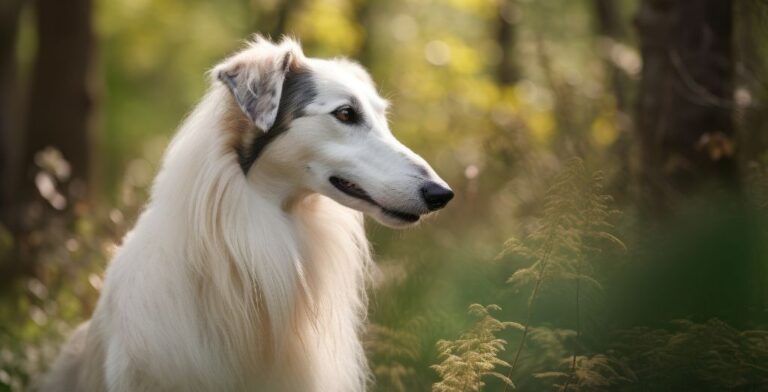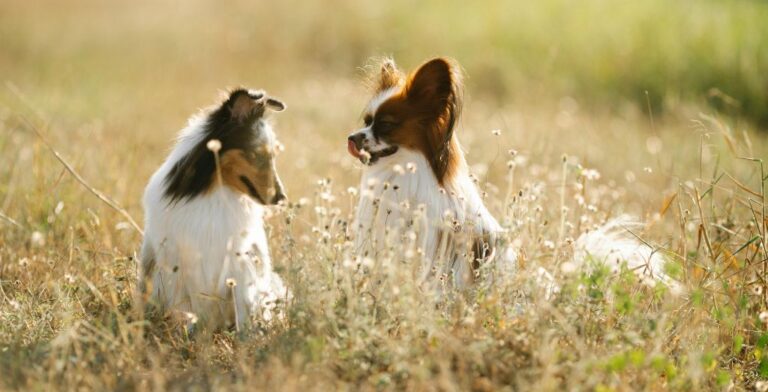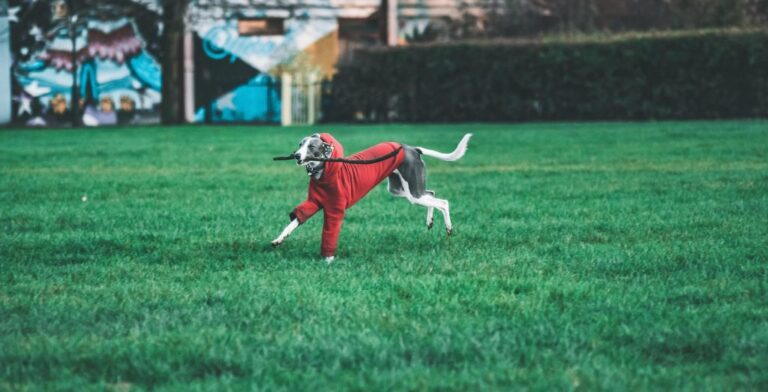Brittany Dog: A Comprehensive Guide
The Brittany Dog, known for its intelligence, versatility, and affectionate nature, is a popular breed cherished by hunters, sports enthusiasts, and families alike. Below, we delve into the Brittany’s history, appearance, size, types, temperament, and health to provide a detailed overview of this exceptional breed.
History
The Brittany Dog originates from the Brittany region of France, with records of the breed dating back to the 17th century. Originally bred as a hunting dog, the Brittany quickly gained a reputation for its agility, keen sense of smell, and exceptional bird-dog skills. Its primary purpose was to point and retrieve game, making it a favorite among European hunters.
The breed’s international recognition grew in the 19th and 20th centuries, particularly in the United States, where it became a versatile hunting companion. In 1934, the American Kennel Club (AKC) officially recognized the Brittany, and in 1982, the AKC adjusted its name by removing “Spaniel,” reflecting its unique characteristics that align more closely with setters.
Appearance
The Brittany is a medium-sized dog known for its athletic and elegant build. Its body is compact and well-proportioned, with a slightly rounded skull and expressive almond-shaped eyes that convey intelligence and warmth. The breed’s ears are set high and feathered, adding to its charm.
The coat is another standout feature, typically medium-length and wavy or flat. Brittany Dogs often have a striking mix of colors, with orange and white or liver and white being the most common combinations. Some dogs also display ticking or roaning patterns, which add depth to their already beautiful coats.
Size
Brittany Dogs are medium-sized, with males slightly larger than females.
- Height: 17.5 to 20.5 inches at the shoulder
- Weight: 30 to 40 pounds
Their size contributes to their agility and speed, making them ideal for hunting and other high-energy activities. Despite their athletic build, Brittanys are light on their feet and display graceful movements.
Types
There are two primary types of Brittany Dogs: the American Brittany and the French Brittany (Epagneul Breton). While both share many similarities, there are subtle differences:
- American Brittany: Typically taller and leaner, with a more high-energy demeanor. This type is well-suited for fieldwork and excels in hunting and sports.
- French Brittany: Shorter and stockier with a slightly calmer temperament. The French Brittany is versatile and equally adept at hunting and being a family companion.
Both types are celebrated for their hunting prowess and affectionate nature, making them excellent choices for various roles.
Temperament
The Brittany Dog is a lively and affectionate breed, known for its intelligence and eagerness to please. These dogs form strong bonds with their families and thrive in environments where they receive attention and companionship.
Key temperament traits include:
- Energetic: Brittanys have high energy levels and require regular exercise, such as long walks, runs, or play sessions.
- Affectionate: They are incredibly loving and enjoy being around their families, often forming deep emotional connections.
- Intelligent: Their sharp minds make them quick learners, but this also means they need mental stimulation to avoid boredom.
- Friendly: Brittany Dogs are generally sociable and do well with children and other pets when properly socialized.
While they are excellent companions, their sensitivity requires gentle and positive training methods to bring out the best in them.
Health
The Brittany Dog is a generally healthy breed with a lifespan of 12 to 14 years. However, like all breeds, they are prone to certain health issues, including:
- Hip Dysplasia: A common condition in medium and large dogs, where the hip joint doesn’t fit properly.
- Epilepsy: Brittanys are prone to seizures, which can often be managed with medication.
- Ear Infections: Their floppy ears can trap moisture, leading to infections if not cleaned regularly.
- Progressive Retinal Atrophy (PRA): A degenerative eye condition that may lead to blindness.
Regular veterinary check-ups, a balanced diet, and an active lifestyle are crucial to ensuring the Brittany Dog remains healthy and happy.
8 Fun Facts About the Brittany Dog

The Brittany Dog, affectionately known as the Brittany Spaniel, is a delightful and energetic breed that captures the hearts of dog enthusiasts worldwide. This intelligent and versatile canine is steeped in history and filled with fascinating traits. Let’s explore eight intriguing facts about the Brittany Dog that make them truly special:
1. They Have a Long, Storied History
The Brittany Dog’s roots trace back centuries to the French province of Brittany, where they were bred as hunting companions. The earliest records of these dogs date back to the 17th century, depicted in tapestries and writings as skilled bird hunters. Their popularity soared during the 1800s when they became the go-to dogs for hunters seeking a reliable and agile partner. Their rich history has made them one of the most iconic breeds in the world of gun dogs.
2. They’re Considered Among the Most Versatile of Bird Dogs
The Brittany Dog stands out as one of the most versatile bird dogs, excelling in pointing, retrieving, and flushing out game. Unlike many hunting breeds, the Brittany combines speed, agility, and endurance, making them suitable for various terrains and climates. Their acute sense of smell and instinctive hunting skills set them apart, and they have been trusted companions for hunters across Europe and North America for generations.
3. The Breed’s Name Changed in 1982
Originally called the Brittany Spaniel, this breed’s name underwent a significant change in 1982. The American Kennel Club (AKC) dropped the word “Spaniel” from their name, recognizing that the Brittany’s hunting style was more similar to setters than spaniels. This change also reflected the breed’s unique identity as an independent and versatile gun dog, distinct from other spaniel breeds.
4. Hunting Skills Serve Them Well in Dog Sports
Brittany Dogs aren’t just exceptional hunters—they also shine in a variety of dog sports. Their speed, agility, and intelligence make them champions in events like agility trials, flyball, and obedience competitions. The breed’s natural athleticism and drive make them formidable competitors, whether they’re retrieving game in the field or navigating obstacle courses in a competition.
5. They’re Champions Inside and Outside the Ring
The Brittany’s excellence isn’t limited to hunting and sports; they also excel in the show ring. Known for their sleek coats, balanced builds, and expressive eyes, Brittany Dogs have won numerous awards in conformation shows. Their grace and poise, coupled with their charming personalities, have made them crowd favorites. Outside the ring, they continue to win hearts as loyal and affectionate companions.
6. Their Energy Levels Are High
Brittany Dogs are renowned for their boundless energy. This breed thrives in active households where they can participate in activities like hiking, running, or fetching games. Their high energy levels require daily exercise to keep them physically and mentally stimulated. Without adequate activity, Brittanys can become restless, which underscores the importance of providing them with plenty of opportunities to burn off energy.
7. They Can Be Great Pets for the Right Family
While Brittany Dogs are energetic and driven, they are also incredibly affectionate and loyal, making them wonderful family pets. They tend to bond closely with their owners and thrive in environments where they receive ample attention and care. Families with active lifestyles are the best match for this breed, as they need plenty of physical and mental stimulation. Their friendly nature also makes them great companions for children and other pets, provided they are socialized early.
8. They Can Be a Sensitive Breed
Despite their robust and active nature, Brittany Dogs are known for their sensitivity. They respond best to positive reinforcement and gentle training methods, as harsh treatment can lead to anxiety or fearfulness. Their sensitivity also means they are highly attuned to their owners’ emotions, often forming deep emotional connections. This trait makes them not only excellent working dogs but also loving and empathetic companions.
Cost of Owning a Brittany Dog

The cost of owning a Brittany Dog can vary depending on several factors, including the breeder, location, and whether the dog is a puppy or adult. Here’s a breakdown of the potential expenses:
Initial Purchase or Adoption Costs
- From a Breeder: A Brittany puppy from a reputable breeder typically costs between $800 and $2,000, depending on the dog’s lineage, health certifications, and show potential. Puppies with championship bloodlines can cost more.
- Adoption Fees: Adopting a Brittany Dog from a rescue organization or shelter may cost between $200 and $500. This often includes initial vaccinations and spaying/neutering.
Ongoing Costs
- Food: Brittany Dogs require high-quality dog food to support their energy needs. Expect to spend $30 to $70 per month on food, depending on the brand and size of your dog.
- Grooming: While Brittanys are relatively low-maintenance, occasional professional grooming might cost $40 to $80 per session. Regular brushing at home can reduce these costs.
- Veterinary Care: Routine check-ups, vaccinations, and preventive treatments (like flea and tick control) can cost around $300 to $600 annually. Unexpected health issues or emergencies can increase these expenses.
- Training: Professional training or obedience classes may cost $100 to $300 for a series of sessions, depending on the trainer and location.
- Supplies: Leashes, collars, toys, and bedding can add an initial cost of $100 to $200, with occasional replacements needed over time.
Other Costs
- Dog Sports or Competitions: If you plan to involve your Brittany in activities like agility or hunting trials, additional costs for training and entry fees may apply.
Pet Insurance: Monthly premiums for pet insurance typically range from $20 to $50, depending on the coverage.
Conclusion
The Brittany Dog is a remarkable breed known for its intelligence, versatility, and affectionate nature. Whether you’re seeking a skilled hunting companion, a competitor in dog sports, or a loving family pet, the Brittany excels in every role. With their energetic temperament, they thrive in active households that can provide ample exercise and mental stimulation. Their rich history, striking appearance, and loyal disposition make them a favorite among dog enthusiasts worldwide.
While they are relatively low-maintenance, prospective owners should be prepared for their high energy levels and sensitive nature. Proper care, including regular exercise, grooming, and health check-ups, ensures that a Brittany Dog will live a long, happy life as a cherished member of the family. For those ready to embrace this dynamic breed, the Brittany Dog offers a lifetime of companionship and joy.
FAQs
1. Are Brittany Dogs good for families?
Yes, Brittany Dogs are excellent family pets, especially for active households. They are affectionate, friendly, and great with children when socialized properly. However, they need plenty of exercise and mental stimulation to stay happy and healthy.
2. How much exercise does a Brittany Dog need?
Brittany Dogs are high-energy breeds that require at least 1-2 hours of physical activity daily. Activities like running, hiking, or playing fetch are ideal for meeting their exercise needs and preventing boredom.
3. Do Brittany Dogs shed a lot?
Brittany Dogs are moderate shedders. Their medium-length coats require regular brushing—at least once or twice a week—to minimize shedding and keep their fur clean and healthy.










